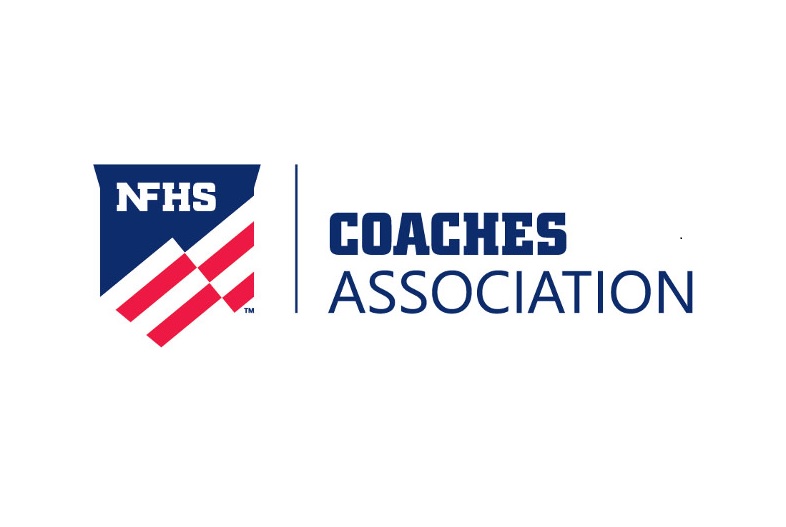
Best Practices
June 28, 2016
Two-thirds of concussions reported in Michigan high school football last fall occurred in games. Even though there are at least five times more hours of exposure during practices than games, there are half as many concussions during practice, according to the mandated concussion reporting requirement of the Michigan High School Athletic Association that is unmatched in the country in terms of its depth and breadth for a statewide requirement.
Michigan was among the handful of states to restrict contact in practice, in 2014, a full season prior to recommendations from the National Federation of State High School Associations and later action by most other statewide associations.
Some of those statewide organizations continue to operate without limitation on contact in football practices, while their counterpart organizations in other states have gone so far as to limit contact to a certain number of minutes in a day and/or week.
Entering mostly uncharted waters for high school football in early 2014, an MHSAA task force recommended that the number of practices be limited where collisions between players could occur – no more than one per day during preseason, no more than two per week after the first game.
This change was embraced by this state’s football coaches association and adopted by the MHSAA Representative Council. All parties liked the ease of administration of this policy, and all distrusted the idea of limiting the number of minutes of contact during practices.
If there is a 30-minute limit on contact in a day or a 90-minute limit on contact in a week, is it the same 30-minute or 90-minute period for all players, even if many are not involved in one or more of the contact drills? Or does the limit apply to each player individually; and if so, how is that tracked, and by whom?
These and other questions made coaches and administrators question how effective a limit on minutes might really be. Nevertheless, a 90-minute per week limit during regular season has been made an MHSAA recommendation for the 2016 season. This will provide an opportunity to address and possibly answer some of the questions that have been raised.
The MHSAA will survey schools this fall about their practice plans and the actual time spent in contact drills by players, assessing how that differs according to offense, defense, player position and grade in school, and determining best practices for how to track player contact minutes.
When Michigan acted in 2014 to limit contact in practice, it was one of the first states to do so. As Michigan takes additional steps to limit contact in practice, it will be one of the first states to do so after researching the best ways to actually do it.

3 Michigan Leaders Earn NFHS National 'Coach of the Year' Honors
By
Geoff Kimmerly
MHSAA.com senior editor
January 18, 2022
Three Michigan high school varsity coaches have been recognized among 23 National Coaches of the Year for 2020-21 by the National Federation of State High School Associations (NHFS) Coaches Association.
Ann Arbor Pioneer girls swimming & diving coach Stefanie Kerska, Bronson volleyball coach Jean LaClair and DeWitt football coach Rob Zimmerman were selected by a committee including representatives from all eight NFHS sections – Michigan is part of Section 4 with Illinois, Indiana, Iowa and Wisconsin.
The following brief bios includes an excerpt from each honoree’s coaching philosophy, which nominees were asked to submit after being identified as candidates for the awards.
 Stefanie Kerska took over both the Ann Arbor Pioneer girls and boys swimming & diving programs during the 2014-15 school year, and she has led the girls to the last two Lower Peninsula Division 1 Finals championships; her 2020 team doubled up the runner-up’s score with 368 points, and this fall’s team climbed even higher with 405.5 points at the season-ending meet. She also led the girls team to a runner-up Finals finish in 2019 and the boys team to last season’s LPD1 Finals championship. Kerska previously served as an assistant coach at University of Michigan from 1997-2012 and on the USA Swimming national team staff from 2008-16. She remains active with USA Swimming, the FINA Swimming Development Team and as a presenter for the Summit for Empowering Women in Swim. She was named the Michigan Interscholastic Swim Coaches Association Coach of the Year for both Division 1 girls and boys during the 2020-21 school year.
Stefanie Kerska took over both the Ann Arbor Pioneer girls and boys swimming & diving programs during the 2014-15 school year, and she has led the girls to the last two Lower Peninsula Division 1 Finals championships; her 2020 team doubled up the runner-up’s score with 368 points, and this fall’s team climbed even higher with 405.5 points at the season-ending meet. She also led the girls team to a runner-up Finals finish in 2019 and the boys team to last season’s LPD1 Finals championship. Kerska previously served as an assistant coach at University of Michigan from 1997-2012 and on the USA Swimming national team staff from 2008-16. She remains active with USA Swimming, the FINA Swimming Development Team and as a presenter for the Summit for Empowering Women in Swim. She was named the Michigan Interscholastic Swim Coaches Association Coach of the Year for both Division 1 girls and boys during the 2020-21 school year.
“Athletics starts with a belief in belonging and making every team member feel safe and valued. Teammates should depend on coaches and each other for support, guidance and motivation to be the best they can be. Athletics should create an environment where effort, attitude and dependability are valued and required for success. It is often said that athletics builds character. I, however, believe it reveals it.”
 Jean LaClair ranks fourth in Michigan high school volleyball coaching history for varsity victories with a record of 1,289-398-99 having led Midland Dow from 1988-90, Pinconning from 1997-99 and Bronson beginning with the 2000-01 winter season. She’s coached Bronson to five MHSAA Finals championships – including four straight in Class C/Division 3 from 2015-18 – and her last two teams have reached the Division 3 Quarterfinals and Regional Semifinals, respectively. She is a longtime executive board member of the Michigan Interscholastic Volleyball Coaches Association and has served as president, and was a 2017 inductee to the Michigan High School Coaches Association’s Hall of Fame. She also serves as Bronson’s athletic director and has received both the MHSAA’s Women In Sports Leadership Award and Allen W. Bush Award.
Jean LaClair ranks fourth in Michigan high school volleyball coaching history for varsity victories with a record of 1,289-398-99 having led Midland Dow from 1988-90, Pinconning from 1997-99 and Bronson beginning with the 2000-01 winter season. She’s coached Bronson to five MHSAA Finals championships – including four straight in Class C/Division 3 from 2015-18 – and her last two teams have reached the Division 3 Quarterfinals and Regional Semifinals, respectively. She is a longtime executive board member of the Michigan Interscholastic Volleyball Coaches Association and has served as president, and was a 2017 inductee to the Michigan High School Coaches Association’s Hall of Fame. She also serves as Bronson’s athletic director and has received both the MHSAA’s Women In Sports Leadership Award and Allen W. Bush Award.
“High school athletics should be a lifelong, fun experience for our student-athletes where they learn what it takes to be a part of a team, what it means to work hard for the team. Those who play competitive spots in high school demonstrate more confidence, leadership and self-respect. They learn to set goals and manage their time! They have a better appreciation for diversity and a more developed sense of morality. These are all reasons why athletics are important, and I love working with our kids to make them better leaders for the community and world.”
 Rob Zimmerman led DeWitt to the last two Division 3 championship games and the Panthers’ first MHSAA Finals title to cap the 2020 season with a 12-0 record. He’s built a 241-67 record coaching DeWitt’s varsity since 1999 after previously coaching the varsity at Cedar Springs from 1996-98. He also has served as a head varsity track & field coach and middle school wrestling coach during his tenure in school sports, and he has served as both a regional director and on the executive board for the Michigan High School Football Coaches Association. His teams total have played in six MHSAA Finals, to go with 19 league, 14 District and 12 Regional titles during his 23 seasons at DeWitt. He has five times received statewide Coach of the Year recognition from The Associated Press, and in 2020 was named the state Dream Team Coach of the Year by both the Detroit Free Press and MHSFCA and state Coach of the Year by the MHSCA and Detroit Lions.
Rob Zimmerman led DeWitt to the last two Division 3 championship games and the Panthers’ first MHSAA Finals title to cap the 2020 season with a 12-0 record. He’s built a 241-67 record coaching DeWitt’s varsity since 1999 after previously coaching the varsity at Cedar Springs from 1996-98. He also has served as a head varsity track & field coach and middle school wrestling coach during his tenure in school sports, and he has served as both a regional director and on the executive board for the Michigan High School Football Coaches Association. His teams total have played in six MHSAA Finals, to go with 19 league, 14 District and 12 Regional titles during his 23 seasons at DeWitt. He has five times received statewide Coach of the Year recognition from The Associated Press, and in 2020 was named the state Dream Team Coach of the Year by both the Detroit Free Press and MHSFCA and state Coach of the Year by the MHSCA and Detroit Lions.
“In an ever-changing world that poses more social and emotional challenges for young people than ever before, systems that can provide a foundational support and teach high levels of collaboration, discipline, accountability and relationships are more important that ever. Athletics provides young people the opportunity to foster and cultivate these key traits that are crucial for their development. For future success, students need to be equipped to handle a variety of diverse situations and work with a variety of diverse people. This is sports at its core.”
Rockford wrestling coach Brian Richardson was honored in Section 4 after leading the Rams to the Division 1 Semifinals and a 20-4 record.
The NFHS has been recognizing coaches through an awards program since 1982.

